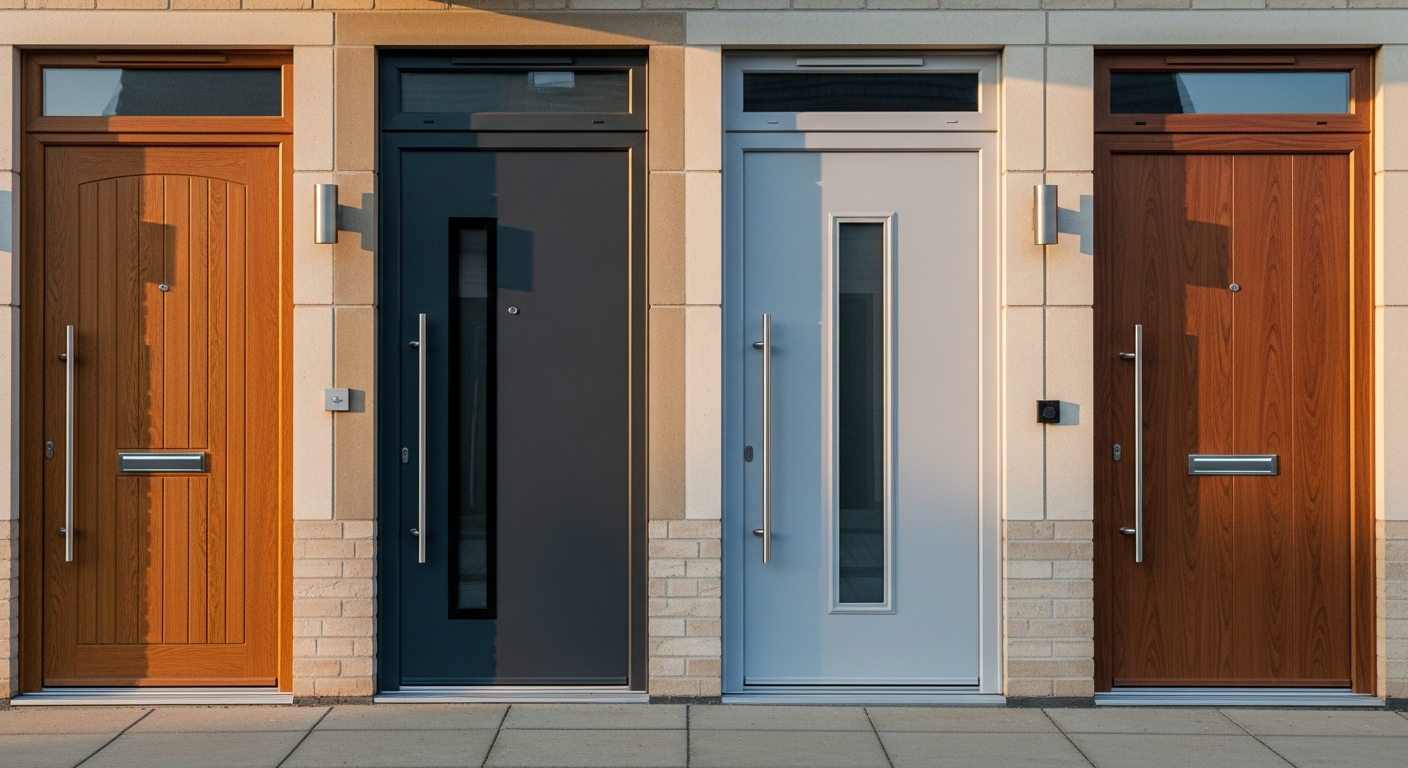Social housing for over 60s: no deposit options explained
Navigating the housing market for the over-60s can be daunting, especially when seeking options without deposit requirements. This guide offers essential insights and practical advice. As the UK population ages, demand for suitable housing for older adults has increased significantly. Social housing options for individuals aged 60 and above provide a vital lifeline, particularly when financial constraints make traditional renting challenging. This article explores the landscape of social housing for over-60s, focusing on options that require no upfront deposits and how to access them effectively.

Social housing represents a vital lifeline for older adults seeking affordable, secure accommodation without the burden of substantial upfront costs. Across the UK, local authorities and housing associations manage properties specifically allocated to seniors, with certain schemes eliminating deposit requirements entirely. This approach acknowledges the financial constraints many pensioners face and prioritises accessibility over traditional rental market barriers.
The availability of no deposit social housing varies by region, with waiting lists and allocation processes differing between councils. Understanding how these systems operate, what qualifications are necessary, and how to navigate the application process can significantly improve your chances of securing suitable accommodation in your later years.
Understanding eligibility criteria for over 60s social housing
Eligibility for senior social housing typically begins with age requirements, though turning 60 does not automatically guarantee placement. Local authorities assess applications based on multiple factors including current housing circumstances, medical needs, financial situation, and connection to the local area. Priority is often given to individuals experiencing homelessness, living in unsuitable or overcrowded conditions, or facing health challenges that their current accommodation cannot address.
Most councils require applicants to demonstrate residency within their borough for a specified period, commonly between two and five years. Income thresholds may apply, ensuring that social housing reaches those with genuine financial need rather than individuals with substantial savings or property assets. Supporting documentation such as proof of age, income statements, medical records, and identification will be required during the assessment process.
Some housing associations operate their own eligibility frameworks separate from council schemes, potentially offering additional pathways for seniors who may not meet strict local authority criteria. Researching both council-managed and independent housing association properties can broaden your options considerably.
How do no deposit options work in senior social housing?
Traditional private rental agreements typically require deposits equivalent to four to six weeks’ rent, creating immediate financial obstacles for pensioners on fixed incomes. Social housing schemes designed for over 60s frequently waive this requirement entirely, recognising that older tenants often possess limited liquid capital despite years of financial responsibility.
When no deposit is required, the housing provider assumes greater initial risk but benefits from stable, long-term tenancies that characterise senior accommodation. Instead of upfront payments, tenants enter into rental agreements with clearly defined monthly payments, often calculated as a percentage of their pension or benefits income. This income-based rent structure ensures affordability while maintaining the financial sustainability of the housing stock.
Some schemes may request a small administration fee to cover application processing costs, but these amounts remain minimal compared to standard rental deposits. Prospective tenants should verify whether any fees apply during initial enquiries and request written confirmation of all financial obligations before signing tenancy agreements.
Benefits of social housing programs for seniors
Beyond financial accessibility, social housing for older adults delivers numerous advantages that enhance quality of life and wellbeing. Properties are typically designed or adapted with age-related needs in mind, featuring level access, handrails, emergency alarm systems, and accessible bathroom facilities. This thoughtful design reduces accident risks and supports independent living for longer periods.
Community aspects form another significant benefit, with many developments incorporating communal spaces, organised activities, and on-site support services. These features combat social isolation, a prevalent concern among older populations, by fostering connections between residents and providing opportunities for engagement.
Security of tenure offers peace of mind that private rental arrangements rarely match. Social housing tenancies provide strong legal protections against arbitrary eviction, allowing seniors to establish genuine homes rather than temporary accommodation. Rent levels remain controlled and predictable, shielding residents from the volatility of private rental markets where costs can escalate unexpectedly.
Practical steps to secure senior social housing
Beginning your application requires contacting your local council housing department or registering through their online portal. Many authorities participate in choice-based letting schemes where available properties are advertised regularly, allowing registered applicants to express interest in suitable options. Completing the initial registration accurately and comprehensively accelerates the assessment process.
Gathering supporting documentation in advance streamlines applications considerably. Prepare recent bank statements, pension documentation, medical letters from your GP highlighting any health conditions affecting housing needs, proof of current address, and photographic identification. If you require adaptations or ground-floor accommodation due to mobility limitations, obtaining written confirmation from healthcare professionals strengthens your case.
Maintaining regular contact with the housing department demonstrates ongoing interest and ensures you receive updates about policy changes or new opportunities. Some applicants benefit from assistance through local Age UK branches or citizens advice services, which can provide guidance on completing forms and understanding your rights throughout the process.
Cost considerations and financial assistance
While social housing rents remain significantly below market rates, understanding the full financial picture remains essential for planning purposes. Weekly rents for one-bedroom senior accommodation typically range from £80 to £140 depending on location and property type, with sheltered housing schemes sometimes commanding slightly higher amounts due to additional services provided.
| Accommodation Type | Average Weekly Rent | Additional Costs | Financial Support Available |
|---|---|---|---|
| Standard social housing flat | £80 - £120 | Council tax, utilities | Housing Benefit, Pension Credit |
| Sheltered housing scheme | £100 - £140 | Service charges (£15-£30/week) | Housing Benefit, Attendance Allowance |
| Extra care housing | £120 - £160 | Care packages (variable) | Housing Benefit, Council funding |
Prices, rates, or cost estimates mentioned in this article are based on the latest available information but may change over time. Independent research is advised before making financial decisions.
Most seniors qualify for Housing Benefit or the housing element of Universal Credit, which can cover rent costs partially or entirely depending on individual circumstances. Pension Credit may also be available to top up weekly income to minimum levels, while Council Tax Support reduces or eliminates council tax obligations for those on low incomes.
Service charges in sheltered or extra care housing cover communal facilities, alarm systems, and warden services. These charges are sometimes eligible for Housing Benefit coverage, though policies vary between local authorities. Clarifying which costs are covered before accepting a tenancy prevents unexpected financial strain.
Navigating waiting lists and timelines
Realistic expectations about waiting times help manage the application process effectively. High-demand areas, particularly in urban centres and southern England, often have waiting lists extending several years for desirable properties. Priority banding systems determine allocation order, with urgent cases receiving preference over those in stable but unsuitable accommodation.
Regularly updating your application when circumstances change can affect your priority status. Significant health deterioration, relationship breakdown, or loss of current accommodation may elevate your position within the queue. Remaining flexible about location and property type also increases placement speed, as less popular areas or upper-floor flats become available more frequently.
Some applicants explore mutual exchange schemes if already in social housing, swapping with other tenants seeking different locations or property sizes. This approach can accelerate moves compared to waiting for direct allocations through standard channels.
Social housing for over 60s with no deposit requirements represents a practical solution for seniors seeking secure, affordable accommodation without prohibitive upfront costs. Understanding eligibility criteria, application procedures, and available financial support empowers older adults to navigate these systems effectively. While waiting times and regional variations present challenges, the long-term benefits of stable, age-appropriate housing with strong tenancy protections make pursuing these options worthwhile for many pensioners across the United Kingdom.




